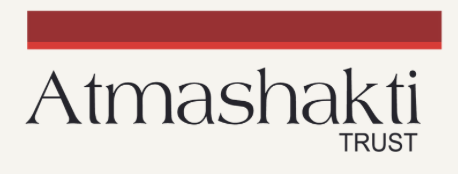Empowering Young Girls from Underserved Backgrounds through Digital Access: A Capacity Building Program (Privilege Fellowship) by Lex Foundation
Keywords:
Privilege Fellowship, Women Empowerment, Education and Livelihood, Online Mentorship, Lex Foundation, Focused Mentorship, Social & Economical Inclusion, Virtual Access for Education & Mentorship, Role of Digital Access, Goal SettingAbstract
This paper describes a project by Lex Foundation called Privilege Fellowship, aimed at Capacity Building and Women Empowerment by providing focused mentorship through professionals from industries and financial aid for girls’ education from 11th Class to Graduation.
Privilege Fellowship is a capacity building & women empowerment initiative of Lex Foundation. This provides financial help and focused mentorship to girl students from weak socio-economic backgrounds.
Under the Privilege Fellowship program, Girls students get financial support for their education from 11th class to graduation and focused mentorship from professionals from different fields for their overall development, academic and non-academic. This initiative aims to transform girls from low backgrounds into dignified women empowered with education and financial independence. It also contributes towards poverty alleviation, gender equality, literacy and inclusive society.
This paper further describes how technology (virtual connections) has become a critical infrastructure in terms of reaching out to students and their parents located in different places across the country. It facilitates the selection of students, regular interaction with them and their parents, conducting weekly sessions to educate and mentor these students by professionals located at distant places in India and abroad, and providing financial aid directly into the bank accounts of the students selected for the program.
Further, in the introduction section, the paper describes the deep-rooted social issue of gender-based inequality that prevents girls' education, resulting in the continuation of the cycle of poverty in underprivileged communities. It discusses a strategic intervention called the Privilege Fellowship undertaken by the Lex Foundation to address this social issue. This section also talks about how technology has made it possible to reach out to different stakeholders virtually, which otherwise would not have been possible. The following section of the paper describes and illustrates with some pictures how the intervention was implemented and enabled stakeholders to connect with the help of technology (virtual connections) to conduct educational sessions. The subsequent section describes how this model works, followed by paragraphs on measuring success and testimonials from some of the beneficiaries from the states of Kashmir, Haryana, and Delhi.
Next it describes the digital infrastructure needed to use the technology for virtual connects, Financing the Model, Scaling of the model to enhance the impact in more geographical areas followed by a conclusion.
Downloads
Published
How to Cite
Issue
Section
License
Copyright (c) 2024 Anish Singh (Author)

This work is licensed under a Creative Commons Attribution-NonCommercial-NoDerivatives 4.0 International License.
The Social Innovations Journal permits the Creative Commons License:
CC Attribution-NonCommercial-NoDerivatives 4.0
Under the following terms:
-
Attribution — You must give appropriate credit, provide a link to the license, and indicate if changes were made. You may do so in any reasonable manner, but not in any way that suggests the licensor endorses you or your use.
-
NonCommercial — You may not use the material for commercial purposes.
-
NoDerivatives — If you remix, transform, or build upon the material, you may not distribute the modified material.
- No additional restrictions — You may not apply legal terms or technological measures that legally restrict others from doing anything the license permits.
Notices:
- You do not have to comply with the license for elements of the material in the public domain or where your use is permitted by an applicable exception or limitation.
- No warranties are given. The license may not give you all of the permissions necessary for your intended use. For example, other rights such as publicity, privacy, or moral rights may limit how you use the material
Copyright and Publishing Rights
For the licenses indicated above, authors retain the copyright and full publishing rights without restrictions.





